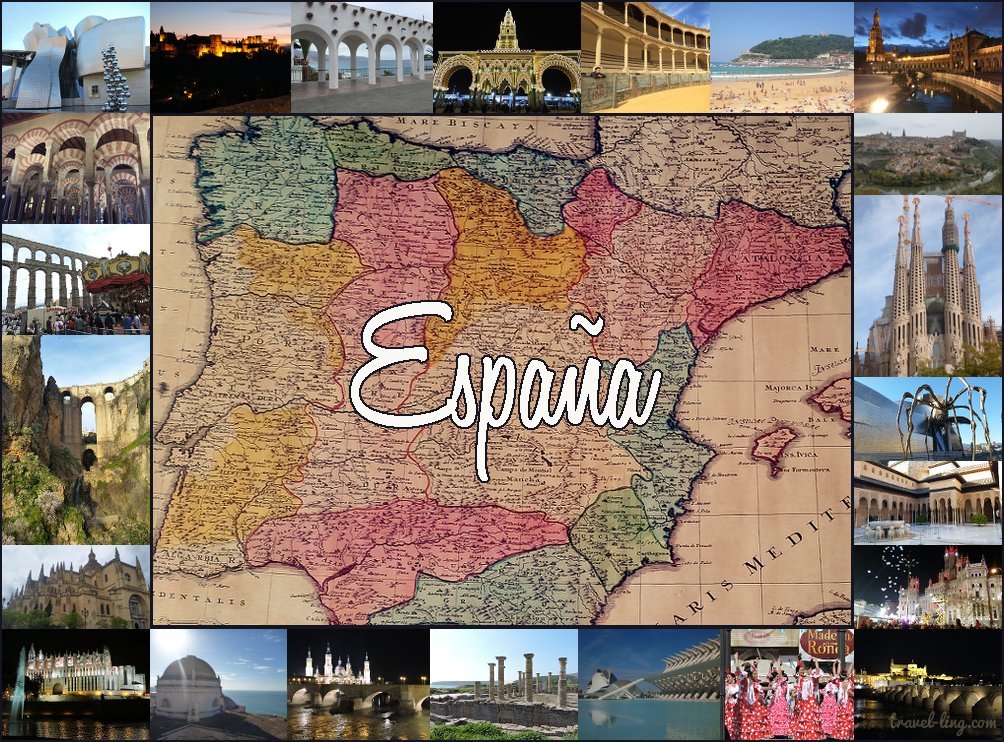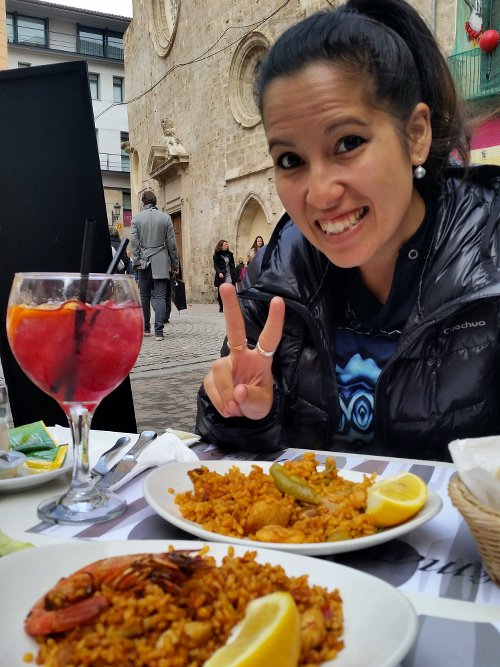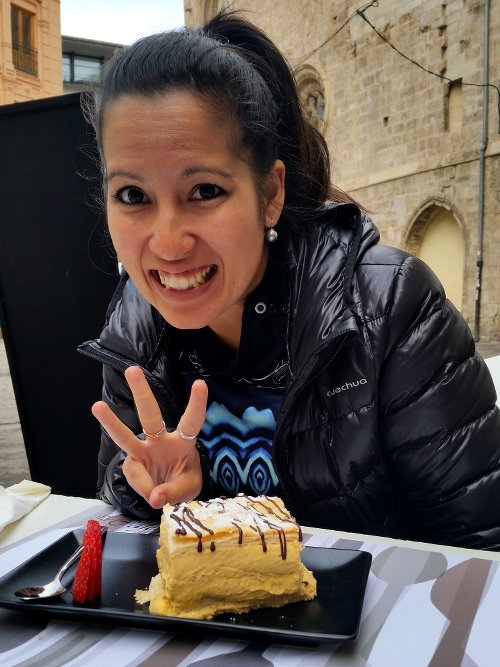Coming from Australia, living in Spain was so cheap! Whilst we had saved a lot to make the most of our year in Spain, we were able to enjoy our life there due to the fact that living expenses were relatively low. For those of you about to take the plunge, I’ve collected average costs on living in a few different cities of Spain. Some of these figures were given to me by friends who are living in those cities, and others were taken from Numbeo.
Granted, the larger the city, the more likely the living expenses will be higher (I know that Madrid prices are quite high in comparison to other cities, but wages are slightly higher to compensate). Other factors such as number of rooms, proximity to the city centre and seasons, can also affect the costs of living, but here is a basic guide for how far your money will go in Spain. You will see that the bigger cities (or party towns) like Madrid and Barcelona are extremely high in comparison to the small pueblos (outside towns) such as Osuna or Pozoblanco. Generally speaking, people who live in the larger cities will live in share apartments. The cost to rent a room in a share house can range anywhere between €340 – €500 (including utilities in some cases).
Want to enjoy the most of your time in Europe? See our cost saving tips here.
Rent is normally paid for in cash, with written receipts provided upon payment. In most cases, the utilities are also paid to the landlord, who presents the invoices on a bimonthly basis. It all seems fairly casual here. To look for places to rent, check out Enalquiler, Idealista and also fliers or notices around town. Some helpful Spanish terms are: alguiler (rent), compatir (share), piso (apartment), habitaciones/dormitorios (rooms), baño (bathroom), cocina (kitchen), amueblado (furnished), calefacción (heating), and aire acondicionado/climatizado (air-conditioning).
To reduce costs, you can always look into sharehouses and split costs between all housemates. This is a popular option for people here, with many Spanish tenants advertising for flatmates. This is probably the only option for those of you living in the larger cities. Note that the cost to rent a room in the bigger cities is close to the cost of renting a 2 or 3 bedroom apartment in the smaller cities. Groceries are cheap and fresh, so cooking throughout the week is a great way to save money. Also look at blablacar for carpooling, as it is often a lot cheaper than buses and trains.
Be warned that electricity is not cheap and during winter, the heating costs will really hurt the bank. Many apartments in Spain are not built for the cold, so heating costs can rise (and rise quickly). Many households use braseros (heaters that are kept under the dining table that warm the legs and toes) when at the table. One way we reduced costs was to wear extra layers of warm clothes and close all the doors and curtains to contain the heat to a room.
Dining out is relatively cheap. If you can, opt for a Menu del Día (Menu of the Day), as you will get a whole lot of food for a small price. Generally offered at lunch time, a Menu del Día includes a starter course, main, dessert, bread and a drink, for well under €20 (bars in our local town had Menu del Días for €8). Places such as Granada also offer free tapas with a drink. You literally could be full and merry for under €10!
- Menu del Día: Primero plato (1st course)
- Menu del Día: Segundo plato (2nd course)
- Menu del Día: Postre (Dessert)
With all that being said, it is still easy to spend money here too! I took up flamenco dancing and singing lessons (which still worked out to be infinitely cheaper than similar classes back in Australia). Gym or club memberships are also popular here, but cheaper than back home (eg. a monthly gym membership is approximately €20-€30 per month). Our biggest expenses were from travelling. We travelled practically every weekend and worked up quite the travel bill over nine months. It was totally worth it, and we saw so much and visited 13 countries during our time in Spain. The key is in planning and knowing where to save money.
Want to travel whilst in Spain, but still keep to a budget? See our planning guide to travel.
And to counteract any expensive lifestyle choices, teaching English can help! In larger cities, you can get away with charging €15-€20/hour for private English lessons, but realistically, you are more likely to get students by charging €10-€12. Academies are always looking for native speakers and will pay you by the hour for group classes. You can advertise your services on Tus Clases Particulares or, in my experience, pick up work just from word of mouth.
I hope this helps with your budgeting needs! As they say in Spain, “¡Buena suerte!”
Latest posts by Kim-Ling (see all)
- 9 Gifts for the Traveller at Home in 2020 - November 27, 2020
- Tropicfeel Shoes – The Travel Shoe for Everywhere, Every Day - June 22, 2020
- Light to Light Camps – The best way to do the Light to Light Walk - July 30, 2019









Hello King-Ling,
I am following your blog for every months, I think that it looks really interesting. I don’t know if you remember me, you was my English native teacher in my secondary school! I am Claudia, do you remember?
I see that you have travelled a lot, what places have you found more interesting? And which less?
Soon, I will travel with my schoolmates to Tenerife island or to Lisboa, I don’t know exactly, for the final trip of the end of secondary school, do you visit this places?
Thanks for read me,
Claudia
Hola Claudia! ¿Qué tal?
I am so happy to know you are following the blog! I hope you are enjoying the English practice from reading it! How is school this year? We have travelled SO MUCH! I still have so many more places to write about! It is hard to pick a favourite, but I love Spain (obviously!), Italy and Croatia. In saying that, I loved so many places for different reasons! I miss living in Spain though and hope to again someday!
How lucky are you to go on an excursion to Tenerife or Lisboa! I haven’t been to Tenerife, but loved Lisboa. It is quite beautiful and there are many things to see and do.
Please stay in touch and say hi to everyone else for me!
Un abrazo
Kim-Ling
Hello nuevamente King-Ling!
I’m very good and try to write you without the translator or traductor in Spanish. My English isn’t very well and I want to improve because it’s necessary,if some day I will want to speak as a normal person in English.
The new year at school it’s different because I feel that I am still in the last year, there are some new people in my class but in bilingual class we are the same.
I can understand you, when you travel you can’t choose your favourite place because a lots of places are amazing. I don’t go to Croatia or Italy, I only went to France when I was seven or eight years. Then, do you want to came here again for living here?
Both places are interesting but the people prefer Tenerife, in my opinion, both are cool, I can’t choose one.
The last sentence that you wrote me, I don’t understand.
Thanks again for read me,
Claudia
Hello Claudia!
Keep practicing your English, as you are doing very well. We have a saying in English, “Practice makes Perfect”. 🙂
We would love to return to Spain to live there! Hopefully one day we can! I miss so many things about Spain (even in Pozoblanco!).
My last sentence meant “por favor, me mantén en contacto, y da mi saludos a todos” (my Spanish is a little bad at the moment too!) 🙂
Kim-Ling
Hi Kim-Ling!
I practical more often my English, I liked the phrase, “La práctica hace la perfección”, is something that also said in Spain. Spain is very beautiful, but the people who live here don’t know this.
I try to contact with more people who don’t speak my language, because I’m tired of not be able to practice orally, I know to write good English, but when I speak in English, I’m very slow and don’t speak very fluently.
Don’t think that you speak bad Spanish, you think that you can only improve, the good news is that you already speak it!
Please I continue writing often here not to lose contact, and greet everyone on your part!
You know, a year ago I opened a blog, but only wrote a few post and leave it, right now it is private, but I have thought for the year coming in January maybe open it again to be able to share what I think the world, perhaps, write in English, and so practical.
I forget to tell you, that I am learning to speak other two languages, French and Portuguese.
Soon,
Claudia